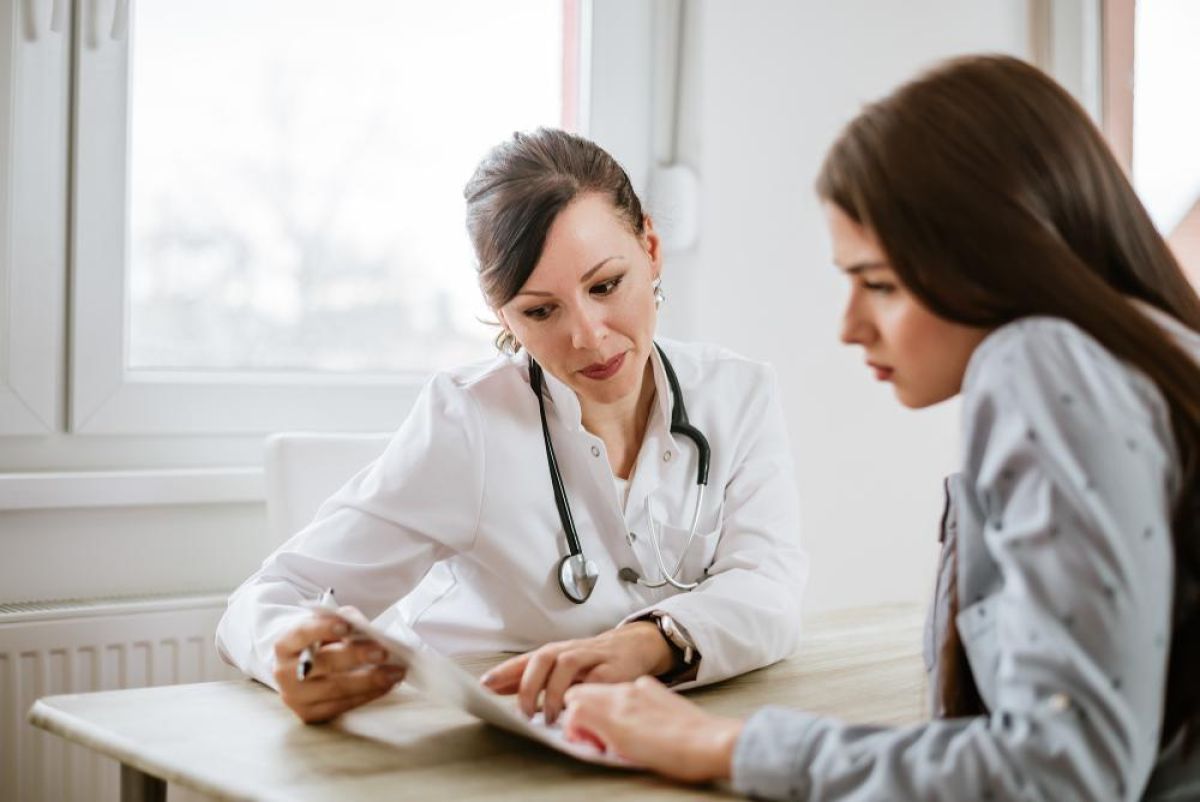How Can I Become an Egg Donor?

When you become an egg donor, you can help a couple who has trouble conceiving to complete their family. At the California Center for Reproductive Health, we invite qualified young women to help struggling couples build families while also learning more about their own reproductive health.
In addition to the altruistic aspects of donating your eggs, you receive handsome compensation for your efforts. The providers take care of you as a donor. You get routine gynecological screening, genetic screening, and fertility diagnostic testing – all for free. Our care gives you a clear picture of your personal reproductive health that you can use in the future when planning your own family.
Here’s how to get started with the egg donor process.
Qualifications for egg donors
Before filling out an application, make sure you meet the following requirements:
- You are a female in generally good health between the ages of 20 and 31
- You have the requisite body mass index
- You have not been diagnosed with a sexually transmitted disease in the past 12 months
- You are a nonsmoker
- Your family history includes no significant health or hereditary issues
- You are not contracted to donate to another agency
If you meet these eligibility requirements, fill out an application so we can contact you to arrange an in-person interview.
Egg donation interviews
If you’re chosen as a possible egg donor, we review your medical history and perform a physical exam. This exam includes a pelvic ultrasound to check the health of your ovaries.
Once you’ve passed these initial interviews, you undergo more detailed evaluation. The doctors perform a full medical history review, physical exam, and sexually transmitted disease screenings. You’ll also undergo a genetic carrier screening test. Even if you’re healthy, you may have a genetic mutation that could be passed on through your donor eggs.
Legal aspects of egg donation
You’ll be asked to enter a legal contract with the recipient or with the California Center for Reproductive Health. Typically, egg donation is done anonymously, so you won’t know the family to whom you’re donating.
The legal contract protects your privacy and that of the couple trying to conceive. It also outlines parental rights, your compensation, and rights and duties as an egg donor. You can request an attorney’s support when reviewing the documentation.
Once you’re selected
You’ll undergo the egg donation process, which begins on the second or third day of your period. You’ll have an ultrasound and blood test and then go on birth control pills for 2-3 weeks to help schedule your egg donation cycle.
Right after you take your last prescribed birth control pill, we repeat the ultrasound and blood tests. When cleared, you begin daily injections of fertility hormones in an effort to recruit multiple egg follicles to grow. During this period, you’ll come to our office regularly to undergo blood tests and ultrasounds.
Once the eggs are mature, we do a minor in-office procedure to retrieve the eggs. We pass a needle through your vagina and into the ovaries to acquire the follicles. You will be under twilight sedation during the procedure so you’ll feel no pain. You can go home the same day.
The retrieval process does not affect your future fertility.
To learn more about becoming an egg donor, call one of our offices in Encino, Valencia, Alhambra, or West Hollywood, California, to set up an appointment. Alternatively, reach out via this website.
Eliran Mor, MD
Reproductive Endocrinologist located in Encino, Valencia & West Hollywood, CA
FAQ
What does a reproductive endocrinologist and infertility specialist do?
Reproductive endocrinology and Infertility is a sub-specialty of Obstetrics and Gynecology. In addition to managing medical and surgical treatment of disorders of the female reproductive tract, reproductive endocrinologist and infertility (REI) specialists undergo additional years of training to provide fertility treatments using assisted reproductive technology (ART) such as in vitro fertilization.
Reproductive endocrinologists receive board certification by the American Board of Obstetrics and Gynecology in both Obstetrics and Gynecology and Reproductive Endocrinology and Infertility.
When should I see an REI specialist?
In general, patients should consider consulting with an REI specialist after one year of trying unsuccessfully to achieve pregnancy. The chance of conceiving every month is around 20%, therefore after a full year of trying approximately 15% of couples will still not have achieved a pregnancy.
However, if a woman is over the age of 35 it would be reasonable to see a fertility specialist earlier, typically after 6 months of trying.
Other candidates to seek earlier treatment are women who have irregular menses, endometriosis, fibroids, polycystic ovary syndrome (PCOS), women who have had 2 or more miscarriages, or problems with the fallopian tubes (prior ectopic pregnancy).
What are the reasons we are having trouble conceiving?
Approximately 1/3 of the time cause for infertility is a female factor, 1/3 of the time a male factor, and the remaining 1/3 a couples’ factor.
At CCRH, we emphasize the importance of establishing a correct diagnosis. Both partners undergo a comprehensive evaluation including a medical history and physical exam.
Furthremore, the woman’s ovarian reserve is assessed with a pelvic ultrasound and a hormonal profile. A hysterosalpingogram (HSG) will confirm fallopian tube patency and the uterine cavity is free of intracavitary lesions. A semen analysis is also obtained to evaluate for concentration, motility, and morphology of the sperm.
Additional work up is then individualized to direct the best possible treatment option for each couple.
What is IVF? What is the process like?
In vitro fertilization (IVF) is the process that involves fertilization of an egg outside of a woman’s body.
The process starts with fertility drugs prescribed to help stimulate egg development. In your natural cycle, your body is only able to grow one dominant egg, but with stimulation medication we can recruit multiple eggs to continue to grow. After about 8-10 days of stimulation, the eggs are surgically retrieved and then fertilized with sperm in a specialized laboratory. Fertilized eggs are then cultured under a strictly controlled environment within specialized incubators in the IVF laboratory for 3-5 days while they develop as embryos. Finally, embryos (or an embryo) are transferred into the uterine cavity for implantation.
Should I have IVF?
Before deciding if IVF is the right choice, it’s important to sit down with an REI specialist to discuss available treatment options. For some people, other methods such as fertility drugs, intrauterine insemination (IUI) may be the best first choice treatment. At CCRH, we believe each individual couple is unique and not everyone needs IVF.
Is the IVF procedure painful?
While not painful, the fertility medications may some side effects including headaches, hot flashes, mood swings, and bloating. The injection sites may also bruise.
Will IVF guarantee a baby?
Unfortunately, no. Many people think once they start IVF it’s a matter of time that they will be pregnant and have a baby. But according to national statistics per the Society of Assisted Reproduction (SART), on average 40% of assisted reproduction cycles achieve live births in women under age 35. The chances of success then continue to decrease with advancing age.
At CCRH, we employ only evidence-based interventions to ensure patient safety and optimal outcome. While we cannot guarantee a baby, we guarantee that you will receive the best, most advanced, personalized care to help you maximize your chance of a baby.
What is the success rate for IVF?
The average IVF success rate (success measured in live birth rate) using one’s own eggs begins to drop around age 35 and then rapidly after age 40. This is due to the decline in egg quantity and egg quality as a woman ages.
Our clinic’s success rate consistently beats the national average year after year.
Do insurance plans cover infertility treatment? How much does IVF cost?
Individual insurance plans often do not have any coverage for infertility treatments. If you have a group plan, you can call members services to see if they have coverage for infertility (including consultation/workup and IVF).
After your consultation with our REI specialist, one of our dedicated account managers with sit with you to go over the cost of treatment.




